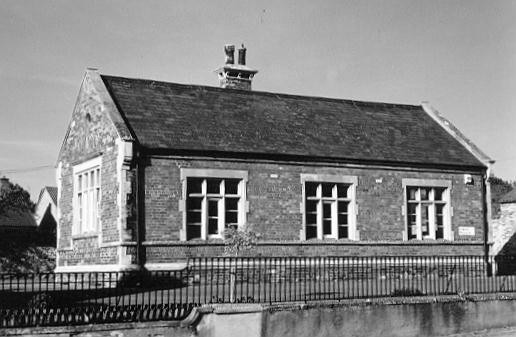|
A Lincolnshire childhood
I was brought up at Folkingham, near Bourne, and attended the village school with my sister and three brothers. We all had to be there by five minutes to nine and if we were late, we either had to go and stand in the porch or in a corner of the hall while prayers were said. Then, while toeing a white line, our shoes were inspected and to make sure they were always clean, out came our hankies, or more usually, a bit of white clean rag, to give them a final polish to save us from getting into trouble. We had a very strict headmaster and his wife taught the younger children. If we were late for prayers, then out came the cane and we were punished. I well remember my sister being a few minutes late one day because she was not too well and the headmaster caned her on both hands. A week later, she died of influenza. That was in 1918. One day, one of my brothers got into trouble and the headmaster hit him and pushed him across the desk. Next day, he had a black eye and so my mother decided to take us away from the school and we were sent to another in the next village which meant a two mile walk each way in all weathers. We took sandwiches for our dinner and ate them standing in the playground unless it was raining, in which case we were allowed to shelter in the porch. But despite everything, our time there was a lot happier. I left school when I was 13 and my first job was on a farm for ten shillings a week, mainly tending a herd of sixty or more pigs. I had to take them every day to a field of stubble quite a way up the road but of course there was not much food for them there and one day, one of the bigger pigs forced its way through a hole in the hedge and all the others followed him back to the farmyard. They were all rooting round the haystacks and when the farmer saw them he started shouting at me and frightened me so much that I ran home in tears, vowing never to tend pigs ever again. Then I went into domestic service for a dairy farmer and his wife for which I was paid 12s. 6d. a week plus my food. I had to get up at a quarter to six, black lead the fireplace and then prepare breakfast for the master and his milkman waggoner. When they had gone off to work, the mistress got up for her breakfast and after that, the chores of the day began. Sometimes, in the evenings, I would have to clean the windows or the family silver and often, if it had been a hot day, I churned the cream ready for the market next day. I also collected the eggs from the hens in the farmyard and counted them as I went along. Supper was around nine o'clock and by then I was almost too tired to crawl into bed. After that I returned to Lincoln and went to work at a doctor's house and then at an hotel where I met my late husband. We married in October 1932. Money was still scarce even then but we managed. I now have a good family of two sons and four daughters, also twelve grandchildren of whom I am very proud. What a different world it seems today. We were so contented in those days. We had to be. My brother and his wife took me back to Folkingham a few months ago to look around. How we enjoyed seeing several of our old haunts. I got quite a thrill when I saw our old school and we went into the church where we all attended Sunday School. It still looked the same. My mother used to pay so much a year for her special pew and I sat in it again for a while, remembering back over the years. As a girl I went sticking, gleaning, blackberrying, even driving horses. We picked plums and crab apples that my mother made into wine. We had a pig killed at Christmas and then the table would creak with all the homemade fare. We were often hard up but they were happy times. This is an edited version
of an account written by Mrs R Wright of 51 Browning Drive, Lincoln,
Go to: Main Index Villages Index
|
